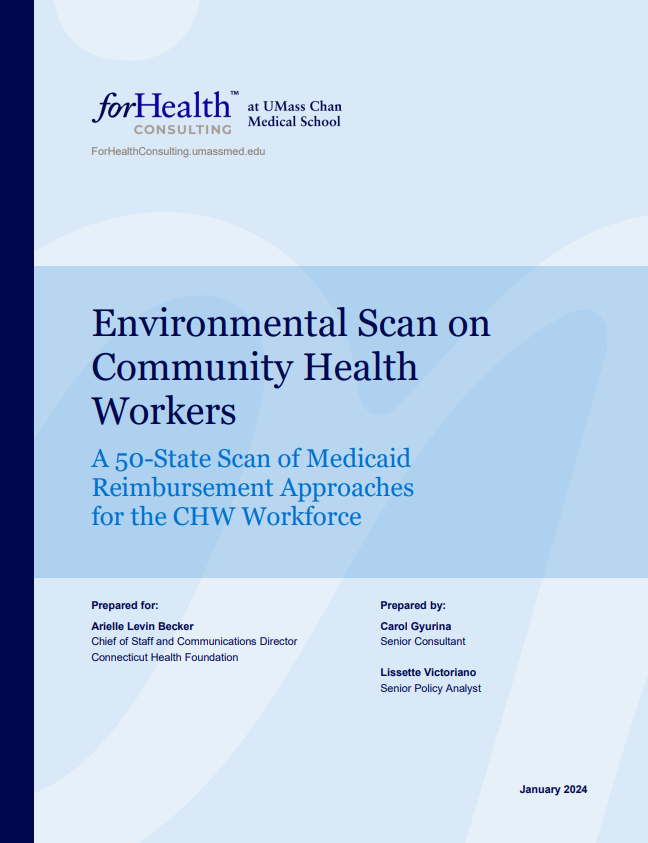Researchers examined 50 states to identify policies and practices for paying for community health worker (CHW) services through Medicaid.
The key findings include:
- 24 states currently pay for community worker services through Medicaid. An additional three states, including Connecticut, are now implementing Medicaid coverage of CHW services.
- States’ coverage varies, with differences in what services are covered, what populations can receive covered services, payment methods and rates, and the vehicle for authorizing the coverage. Each state’s approach is detailed in the report.
- Most commonly, states that cover CHW services make the coverage available to all Medicaid members.
- Most states that cover CHWs through Medicaid deem a similar range of services eligible for payment, including care coordination, systems navigation, health coaching, patient advocacy, clinical support, and community outreach.
- Of the 24 states that currently fund CHW services through Medicaid, eight use a fee-for-service payment model exclusively for these services; six states use managed care for this coverage exclusively; five states cover CHW services through both fee-for-service and managed care; and one states provides a monthly payment rate for CHW services.
The accompanying report includes two documents that detail each state’s approach to CHW coverage through Medicaid. To ease navigation through the extensive information, the researchers prepared two documents: a spreadsheet that can be filtered and sorted to identify states with various approaches, and a full report that provides details for each state. The full report also includes a brief summary and analysis of the overall findings.
The research was conducted by ForHealth Consulting at UMass Chan Medical School and was commissioned by the Connecticut Health Foundation, with the goal of informing Connecticut’s efforts to implement Medicaid payment for community health worker services.
Click here to read the full report
